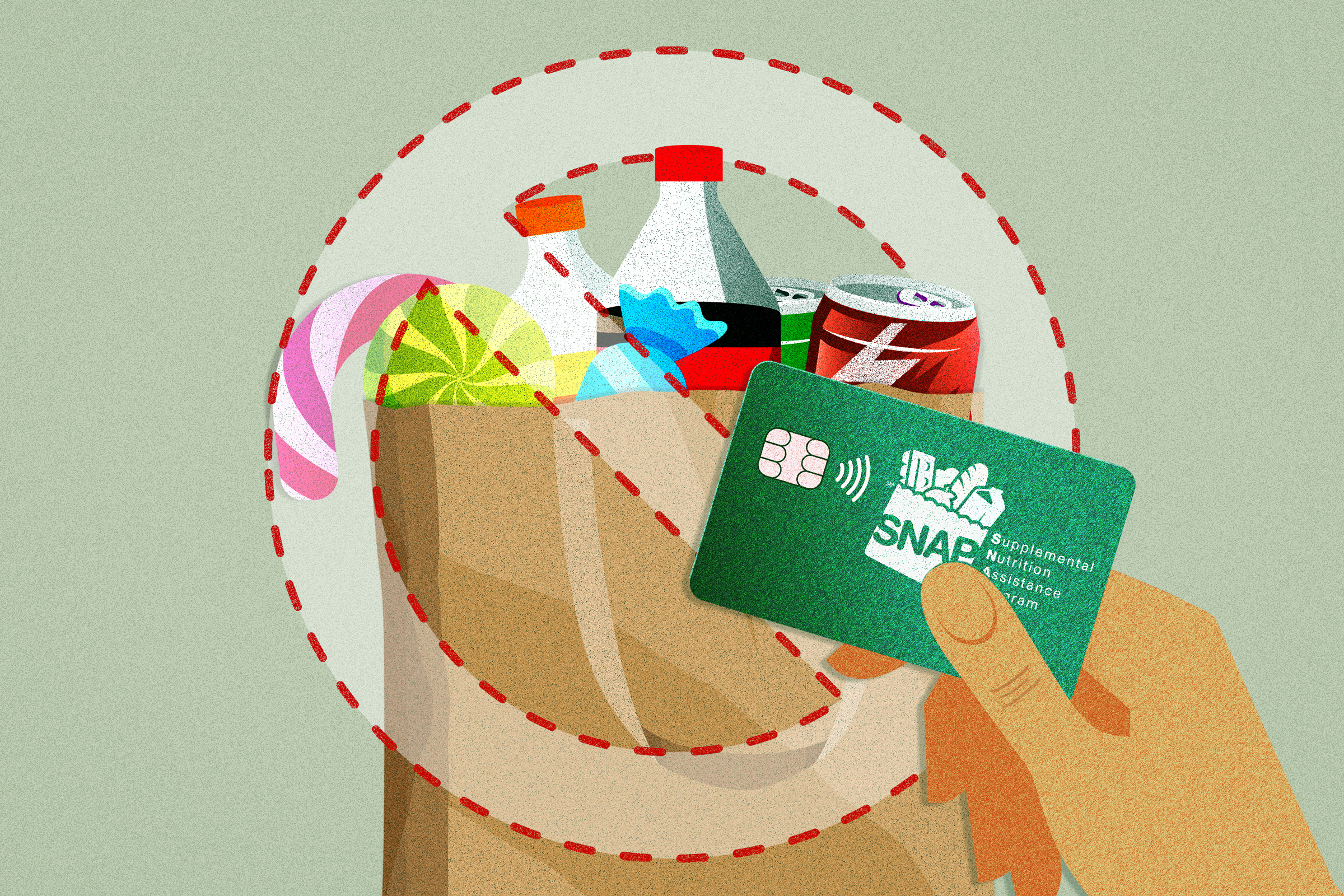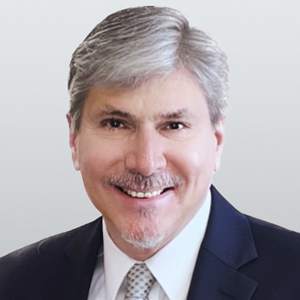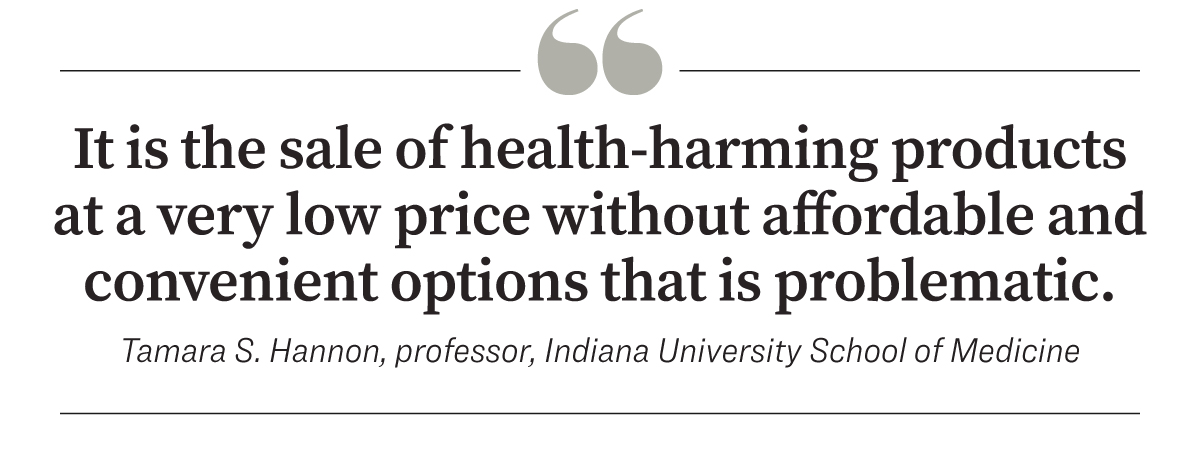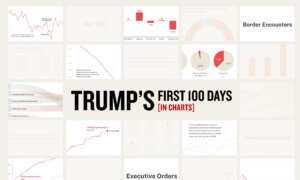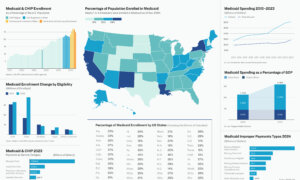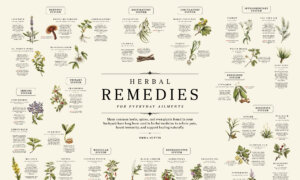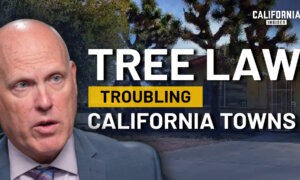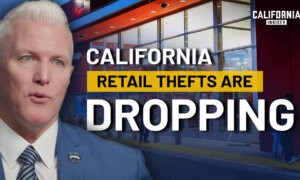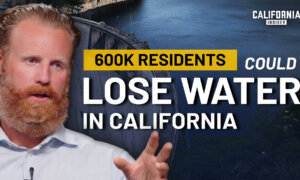INDIANAPOLIS—“It’s not food. It’s food-like substances.”
This is how Health Secretary Robert F. Kennedy Jr. described the many manufactured food products that are high in calories but low in nutritional value.
“Strawberry flavoring in food ... there’s no nutrients,“ Kennedy said. ”It’s sugar. Your body is craving that, but it doesn’t get filled up. It doesn’t give you nutrition, but you want to eat more.”
Kennedy, a longtime health advocate, has championed President Donald Trump’s call for “fresh thinking on nutrition” as part of the “Make America Healthy Again” initiative. The secretary spoke at a news conference in Indianapolis on April 15 in support of Indiana Gov. Mike Braun’s announcement of nine health-related executive orders.
Kennedy has urged states to prohibit the use of Supplemental Nutrition Assistance Program (SNAP) funds to purchase certain foods with high sugar content but little nutritional value.
SNAP, colloquially known as food stamps, is a federal program administered by the states that helps nearly 42 million low-income Americans pay for food.
To change the list of foods eligible for purchase with SNAP funds, states must request a waiver from the U.S. Department of Agriculture (USDA). Several states, including Indiana, are doing that.
Advocates call this a commonsense way to promote better food choices.
Some critics said the initiative amounts to virtue signaling, a symbolic action unlikely to produce any positive effect.
Kennedy said he hopes that it will fuel a movement toward healthier food consumption that will reverse the growing prevalence of obesity among Americans.
Junk Food Origins
Kennedy and others have blamed the glut of tasty but vacuous foods on big tobacco companies, which entered the food industry more than 60 years ago.
Beginning in the 1960s, R.J. Reynolds and Philip Morris, then the largest tobacco brands, began acquiring sugar-sweetened beverages such as Hawaiian Punch, Kool-Aid, Capri-Sun, and Tang and marketing them to children, according to a report from The BMJ, formerly the British Medical Journal.
“Tobacco executives transferred their knowledge of marketing to young people and expanded product lines using colours, flavours, and marketing strategies originally designed to market cigarettes,” a team of researchers reported.

Vuse electronic cigarette packages are displayed at a shop in the Brooklyn borough of New York City on Oct. 13, 2021. The Food and Drug Administration authorized the sale of R.J. Reynolds's Vuse Solo e-cigarette and its tobacco-flavored cartridges the day before, saying data show that the product may reduce smokers’ exposure to harmful chemicals found in traditional cigarettes. (Michael M. Santiago/Getty Images)
In May 1962, R.J. Reynolds’s director of research reported on the status of product development in an internal memo.
The director described the result of taste tests for flavored drinks conducted with children. In the same report, he detailed the addition of artificial flavoring to chewing tobacco and cane sugar to cigarettes.
R.J. Reynolds and Philip Morris eventually went deeper into the food business. They owned major brands Kraft, General Foods, and Nabisco for several years, starting in the 1980s. There, they applied some of their tobacco and flavored drink strategies to manufacturing other foods that people find irresistible.
Researchers at the University of Kansas found that food companies owned by tobacco companies were much more likely than others to market “hyper-palatable” food products.
Hyper-palatable foods contain more of the things that make food taste good, such as fat, sugar, sodium, or carbohydrates, according to Tera Fazzino, author of the study and associate director of the university’s Cofrin Logan Center for Addiction Research and Treatment.
These foods also have fewer of the nutrients that make us feel satisfied, Fazzino said in a 2023 interview.
“As a result, hyper-palatable foods can be difficult to stop eating, even when we physically feel full,” she said.
According to the University of Kansas researchers, “Tobacco companies appear to have selectively disseminated hyper-palatable foods into the U.S. food system between 1988 and 2001.”
That triggered an industry-wide shift, the researchers wrote. By 2018, foods high in fat, sodium, and carbohydrates had long been widely marketed, regardless of whether or not the producers were previously owned by a tobacco company.
The result, according to Kennedy, is an obesity crisis that threatens the health and safety of all Americans.

Boxes of sugary cereal fill a store's shelves in Miami on April 16, 2025. Health and Human Services Secretary Robert F. Kennedy Jr. said that many manufactured food products are high in calories but low in nutritional value. (Joe Raedle/Getty Images)
“We have people who are obese who are at the same time malnourished, because the food that we’re eating is not nutrient-dense anymore,” Kennedy said. “It is threatening our national security: 74 percent of our kids cannot qualify for military service.”

Nearly 70 percent of U.S. adults are either overweight or obese, according to a 2023 report by the federal government. Obesity rates have tripled over the past 60 years, while severe obesity has increased by a factor of 10.
Americans are not alone in this. More than 60 percent of Europeans are either obese or overweight, according to data reported by the National Institutes of Health. Worldwide, the prevalence of obesity has been rising for decades.
States Respond
Indiana and Arkansas became the first states to submit waiver requests to the USDA, asking to exclude soda and candy from SNAP purchases. Both sent their requests on April 15.
Several other states have announced their intentions to seek a waiver, and some are considering legislation to that effect.
Nebraska Gov. Jim Pillen sent a letter to the USDA on April 7 saying that the state intends to request a waiver on soda and energy drinks.
Idaho Gov. Brad Little signed a law on April 15 requiring the director of the state Department of Health and Welfare to request a waiver on soda and candy.
State representatives in Tennessee passed a similar bill on March 11, and the Iowa House of Representatives passed one on March 26. The Tennessee and Iowa senates have not yet acted on the legislation.
Other states have failed to pass or have rejected legislation that mandates a waiver request.

Cans of Monster Beverage Corporation energy drinks fill a store's shelves in Miami on April 16, 2025. Sweetened beverages—including energy drinks, juices, and powder mixes—account for about 9 percent of SNAP food stamps spending. (Joe Raedle/Getty Images)
A West Virginia bill has been stalled in a House committee since Feb. 19. A Missouri bill failed in the state’s House of Representatives on April 8. A Montana bill passed in the state Senate but was shelved by the House Committee on Human Resources on April 9.
Arizona Gov. Katie Hobbs on April 15 vetoed a bill directing her state’s Department of Economic Security to request a waiver. However, Hobbs signed a bill prohibiting “ultra-processed” foods in school lunches.
Support, Skepticism
Advocates of a SNAP ban on soda and candy, including some health professionals, see the policy as reasonable, even obvious.
“I think it just makes wise nutritional sense, business sense, common sense,” Christy Hope, an Indiana social worker, told The Epoch Times. Hope has conducted eligibility screenings in an outpatient pediatric clinic as well as in a Medicaid office.
“The benefits are intended to cover nutritional items,” she said.
SNAP benefits already exclude foods served hot at the point of sale, alcoholic beverages, vitamins, food supplements, cleaning supplies, cosmetics, and personal hygiene products.
Nutrition and policy experts broadly agree that limiting consumption of high-calorie, low-nutrition foods is a worthy goal.
“I can see the hope to shift [people] away from foods that are ... ultra-processed, empty calories [and] toward healthier options,” Bisakha Sen, professor of health policy at the University of Alabama at Birmingham, told The Epoch Times. “I think there’s actually some unity on both sides of the political aisle on this.”
Yet she and others said they doubt the practical value of excluding soda and candy from SNAP purchases, especially when many already struggle to find low-cost food options.
“If we start making a list of [foods] which are good for people and which are not, it will be a huge list,” Nikhil V. Dhurandhar, chair of nutritional sciences at Texas Tech University, told The Epoch Times. “It is not practical.”
Dhurandhar likened a grocery store to a vast buffet.
“If you remove one [sugary] food, there is some other food that’s going to take its place,“ he said. ”I call that digging a hole in water.”
Richard Kahn, adjunct professor of medicine at the University of North Carolina School of Medicine, said the SNAP exclusions amount to a “cheap, easy way to blame the other guy.”
According to Kahn, the idea that taxpayers will no longer subsidize the purchase of sugary foods is mistaken.
“They’re [still] paying for sugar-sweetened beverages because we subsidize the agriculture industry,” he said.

A sign alerting customers about SNAP food stamps benefits is displayed in a grocery store in the Brooklyn borough of New York City on Dec. 5, 2019. Health and Human Services Secretary Robert F. Kennedy Jr. has urged states to ban the use of SNAP funds for foods with high sugar content but little nutritional value, in efforts to promote healthier food consumption and reverse rising obesity rates among Americans. (Scott Heins/Getty Images)
Alternatives
Many nutrition and policy experts favor a holistic, all-of-society approach rather than one that targets behavior in just one group of people.
Some have suggested a tax on soda to discourage consumption. Others have mentioned improving the nutritional value of school lunches. Sen. Bernie Sanders (I-Vt.) has suggested banning television ads for unhealthy foods targeting children.
Nana Gletsu Miller, associate professor at Indiana University School of Public Health, said she favors education over behavioral mandates.
“Based on the evidence for the effectiveness of nutrition education and the lack of evidence for the effectiveness of restriction of food choice, I suggest the former would be a better approach,” Gletsu Miller told The Epoch Times.
A deeper problem is the lack of affordable, nutritious food, according to Dr. Tamara S. Hannon, a pediatric endocrinologist, professor of pediatrics at Indiana University School of Medicine, and director of its clinical diabetes program.
“It is the sale of health-harming products at a very low price without affordable and convenient options that is problematic,“ Hannon told The Epoch Times. ”This policy does not address this issue.”
Kennedy has acknowledged that the broader health care landscape can work against healthy outcomes, yet he said he believes that that can change.

Secretary of Health and Human Services Robert F. Kennedy Jr. speaks during a news conference at the Department of Health and Human Services in Washington on April 16, 2025. (Alex Wong/Getty Images)
“We can realign medical choices, both individual and institutional medical choices, with public health,” Kennedy told The Epoch Times at the Indianapolis news conference.
“It’s totally misaligned [now].”
Achieving realignment will require a concerted effort at the federal, state, and local levels, according to Kennedy.
“We can’t do this alone, but we’re getting tremendous help from the governors, from the grassroots,” he said.
“What’s happening here [in Indiana] is driving this movement, and it’s going to drive cultural change.”

